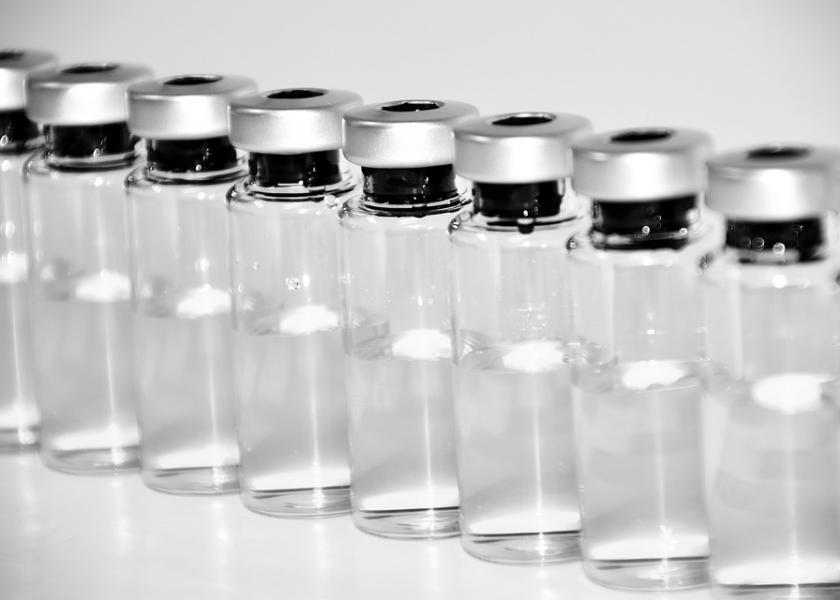Animal Health Companies Target Ways to Lower Antimicrobial Resistance

Antimicrobial resistance is a “One Health” challenge that requires effort across both human and animal health sectors, said Patricia Turner, president of World Veterinary Association.
Developing 100 new vaccines by 2025 was one of 25 commitments made by the world’s largest animal health companies in the Roadmap to Reducing the Need for Antibiotics report that was first published in 2019 by HealthforAnimals.
In the past two years, animal health companies have invested billions in veterinary research and the development of 49 new vaccines as part of an industry-wide strategy to reduce the need for antibiotics, according to a recent progress report released in Belgium.
The recently developed vaccines offer increased protection against disease across many animal species including cattle, poultry, swine, fish as well as pets, the release said. It is a sign the industry is halfway towards its vaccine target with four more years to go.
“New vaccines are essential to reducing the risk of drug resistance developing by preventing diseases in animals that could otherwise lead to antibiotic treatment, such as salmonella, bovine respiratory disease and infectious bronchitis, and preserving vital medicines for both urgent human and animal use,” HealthforAnimals said in a release.
The newest update shows the sector is on track or ahead of schedule across all of its commitments, including investing $10 billion in research and development, and training more than 100,000 veterinarians in responsible antibiotic use.
“The new tools and training provided by the animal health sector will support veterinarians and producers to reduce the need for antimicrobials in animals, which better safeguards people and the environment. We congratulate the animal health sector for the progress achieved to date towards reaching their Roadmap targets,” Turner said in a release.
What’s Next?
Animal health companies are considering ways to expand and add to these targets in the years ahead to accelerate progress in reducing the burden on antibiotics, the report noted.
“The Roadmap is unique across the health industries for setting measurable targets and regular status updates on our efforts to address antibiotic resistance,” said Carel du Marchie Sarvaas, executive director of HealthforAnimals. “Few, if any, have set these types of traceable goals and the progress to date shows how seriously animal health companies are taking our responsibility to tackle this collective challenge, which poses a threat to lives and livelihoods around the world.”
The industry has also launched a series of other preventative products that contribute to lower levels of livestock disease, minimizing the need for antibiotics in animal agriculture, the release said.
Animal health companies created 17 new diagnostic tools out of a target of 20 to help veterinarians prevent, identify and treat animal diseases earlier, as well as seven nutritional supplements that boost immune systems.
Comparatively, the sector brought three new antibiotics to market in the same period, reflecting the increased investment in developing products that prevent illness and the need for antibiotics in the first place, Healthfor Animals said.
In the past two years, the industry has trained more than 650,000 veterinary professionals and provided more than $6.5 million in scholarships to veterinary students.
The Roadmap for Reducing the Need for Antibiotics not only set targets to increase research and development, but it also is focused on One Health approaches, communications, veterinary training and knowledge sharing. The next progress report is expected in 2023.
HealthforAnimals members include Bayer, Boehringer Ingelheim, Ceva, Elanco, Merck Animal Health, Phibro, Vetoquinol, Virbac, Zenoaq and Zoetis.
Read More:
Tools for Managing Pigs Without Antibiotics
Universities Partner to Study Antimicrobial Use in Food Animal Production
FDA Releases Five-Year Plan for Veterinary Antimicrobial Stewardship







